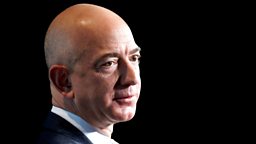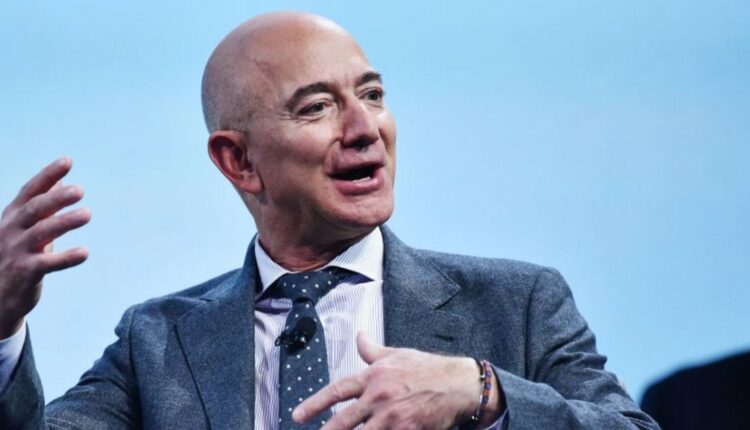10 things you can learn from Billionaire Jeff Bezos
Jeff Bezos is the richest person on the planet, heading up one of the most successful companies ever, Amazon.
It’s no exaggeration to say that, without Bezos, Amazon may never have made its incredible journey from garage-based bookstore to multinational technology business.
Going from “the everything store to the everything company”, as journalist David Baker puts it in Inside the Brain of Jeff Bezos, requires a mindset for risk, tactics, ambition and innovation that goes above and beyond.
Jeff Bezos’ aspirations are not even bound by gravity, as building “a road to space” is among his current preoccupations. How has Bezos positioned Amazon so successfully? Here are 10 credos that sum up the success of Jeff Bezos.
1. Every problem can be solved through thought and ingenuity
Bezos was an early convert to the power of innovation. He would spend summers with his grandfather on his small ranch in Texas and they would fix anything that needed fixing themselves, including taking on big projects like rebuilding an old tractor. His grandfather once saw the sharp end of innovation when he lost a thumb in a car accident – it was replaced using a skin graft from his buttocks. It’s a story Bezos still tells to this day.
2. The customer is always right, right now
Shaped by the experience of going from banking to packing books on his hands and knees, Bezos’ bottom-line is the customer.
A former director of Amazon, Tom Alberg describes Bezos as having been “born with a customer gene” adding, “he does want to make a difference in the world, and in his mind it translated into satisfying customers. And if you make money you can do more things.”
Retail analyst, Natalie Berg describes how this obsession works like a “flywheel” in practice, with a “relentless focussing on customers that attracts more customers to the site, which in turn attracts more sellers, which would in turn attracts a greater selection for customers, enhancing the customer experience. And so it continues to go round and round.”

3. Work backwards and scale forwards
Sunil Gupta, an economist at Harvard Business School, describes Amazon’s creation of new products and services as a process of “work backwards and scale forward.”
This means Amazon think about what customers want and work backwards from there to work out how to deliver it. If the company doesn’t have the capabilities to do this, they build them. Meanwhile, scaling forwards means working out “how you leverage that capability to get into completely new businesses.”
4. It’s always Day 1
A copy of Bezos’ original letter to shareholders is placed in every Amazon annual report. In that letter, the importance of thinking like it is always ‘Day 1’ of the business – i.e. staying lean and hungry for innovation and success – is emphasised.
Day 2 thinking is not an option for Bezos. “Day 2 is stasis followed by irrelevance,” he says, “followed by excruciating painful decline, followed by death. And that is why it is always day 1.”
What’s next for the company that changed the way we shop forever?
5. Take a punt
When dotcoms were in tailspin after their bubble burst in 2000, Bezos took a gamble and opened up Amazon to outside sellers. It was a counterintuitive move, but it paid off. Less successful gambles included a move into the mobile phone business. However, Bezos attitude to risk is robust and he was happy to write off the venture and put it down to experience.
Former Amazon executive and author of The Amazon Way, John Rossman observes that Bezos is happy to make a decision “without knowing where it is going to go”, Alexa being one such example.
6. Fail again, fail better
Ventures that don’t deliver not only reveal Bezos’ bullish attitude to risk but also to failure.
“We have failed so many times,” Bezos has said, “I always think of us as a good place to fail because we are so good at it, we have so much practice.”
7. You’ll never regret something you have tried
Having no fear of failure goes hand-in-hand with a healthy outlook to regret. Bezos set out his stall on this during an interview with Mathias Döpfner, the CEO of publishing company Axel Springer.
“When you think about the things that you will regret when you’re 80, they’re almost always the things that you did not do. They’re acts of omission. Very rarely are you going to regret something that you did that failed and didn’t work or whatever.”
8. Speak your mind
While Bezos’ biographer Brad Stone suggests the Amazon boss may not be a democrat when it comes to having the last word in the boardroom, Bezos does expect that there will be an honest debate. John Rossman felt that Amazon was unlike other companies in this respect. “Most other organisations don’t actively debate; people hold back with their real position is. They don’t lead with customer obsession, with data, they don’t respect the decision-maker and, when a decision is made, they are typically passive aggressive if they don’t agree with the decision and so don’t wholeheartedly buy in to making the decision successful.”
9. Compete
Bezos brings a “powerful competitiveness” to his work. Brad Stone gives the example of Alexa being birthed at a time when Apple already had Siri and Google also had a good voice recognition capacity. “Amazon, by all accounts, probably did not deserve to lead in this category…Jeff was basically the project manager of Alexa and, in a snap of a finger, the Alexa division had 10,000 people or more people working on it because he doesn’t want to cede that ground to Amazon’s competitors.”
10. Look to the long-term
Projecting into the long-term has been key to many of the successes of Bezos and Amazon. John Rossman notes that Bezos is “quite willing to take 10 years to make money on a new area” and to stick with something if progress is being made.
Bezos is certainly in for the long-haul when it comes to his hopes to build an infrastructure for colonising space. Speaking at an event for his aerospace firm, Blue Origin, Bezos was determined: “The Earth is finite, and if the world economy and population is to keep expanding, space is the only way to go.”



